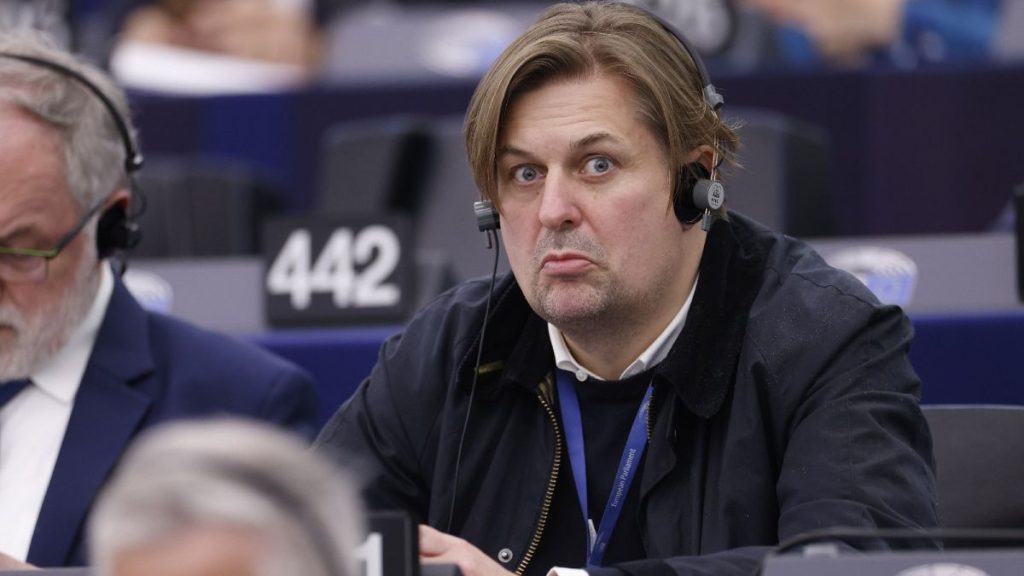The lead candidate for the far-right Alternative for Germany (AfD), Maximilian Krah, has resigned from the party’s federal executive board following pressure from other right-wing parties in Europe such as France’s Rassemblement National, Italy’s Lega, and the Danish People’s Party. Krah’s resignation came after he made controversial comments to Italian media about people who wore the SS Nazi paramilitary group uniform during World War II not being automatically considered criminals, stating that guilt should be assessed on a case-by-case basis. Several of AfD’s allies in the European Parliament’s far-right Identity and Democracy (ID) group announced they would end their alliance with the German party over Krah’s comments, with the possibility of the AfD being removed from the group.
The AfD has been embroiled in various scandals leading up to the European elections. Krah’s assistant, Jian Guo, was arrested in Germany for allegedly serving as an employee of the Chinese secret service and passing on information about negotiations and decisions in the European Parliament to his intelligence client. Krah and Guo’s offices were searched by police, but Krah refused to step down from the AfD’s leadership despite the scandal. Another scandal involved Petr Bystron, the second name on the AfD’s list, who was accused of accepting over €20,000 in cash from a Moscow-backed influence operation to promote its propaganda in the bloc. The party also faced backlash for secret meetings discussing ‘remigration’, or the forced deportation of all foreigners and minority-ethnic German citizens, leading to mass protests across Germany.
Despite being in second position behind the Christian Democratic Union (CDU) in the polls, the AfD’s vote share has been decreasing, while Chancellor Olaf Scholz’s Social Democratic Party (SPD) has been narrowing the gap. The removal of the AfD from the ID group would significantly impact the projected number of seats the group is expected to secure in the upcoming European elections, with projections indicating a potential increase from 59 to 82 seats. The hard-right Eurosceptic European Conservatives and Reformists (ECR) group, which includes former ID parties, is also expected to grow from 68 to 75 seats, while the number of non-aligned hard-right MEPs is projected to increase by 7 to 55. Efforts have been made to bridge the divide between the ID and ECR groups to maximize their influence, as suggested by lead candidate Anders Vistisen.
The European elections have highlighted the political tensions within the far-right groups in the European Parliament. The AfD’s removal from the ID group could have significant implications for its future alliances and influence within the Parliament. The controversies and scandals surrounding the AfD and its candidates have damaged the party’s reputation and standing in the polls, diminishing its electoral prospects. The AfD’s position within the far-right spectrum in Europe has been further complicated by strained relations with its allies, raising questions about its future direction and alliances in the European Parliament. The ongoing developments leading up to the elections underscore the complexities and challenges facing the far-right political movements in Europe as they seek to increase their influence and power in the European Union.













